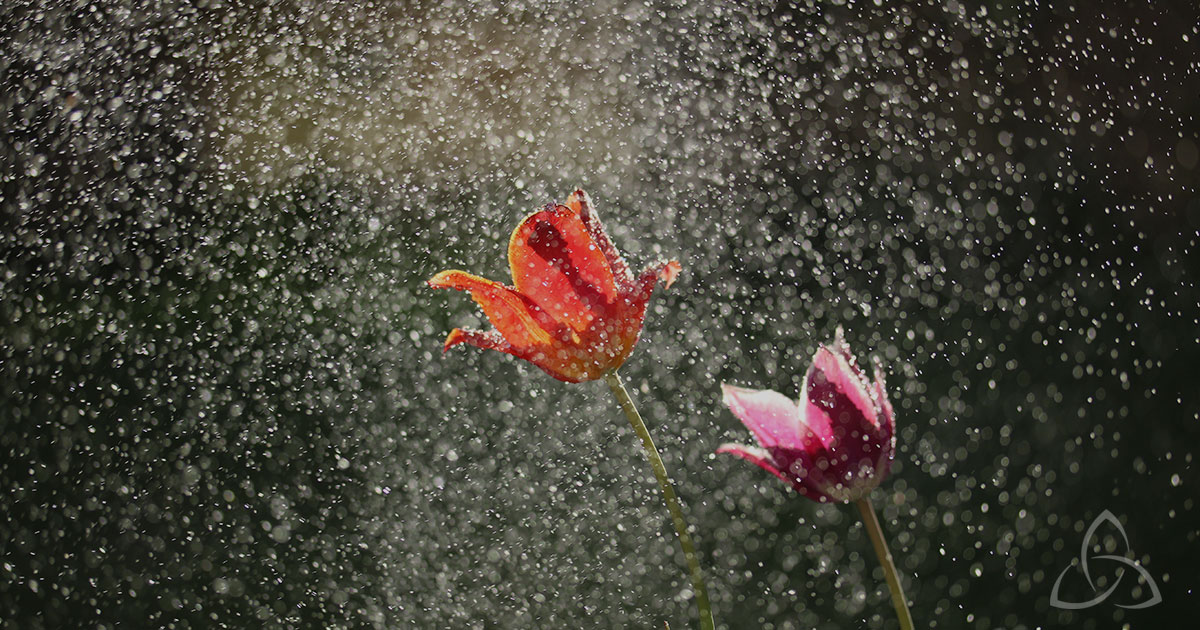
Christian communities as a whole must rediscover poetry, and the pastors must lead them…The word is creative; it brings into being what was not there before – perception, relationship, belief. Out of the silent abyss a sound is formed: people hear what was not heard before and are changed by the sound from loneliness into love. Out of the blank abyss a picture is formed by means of a metaphor: people see what they did not see before and are changed by the image from anonymity into love. Words create. God’s word creates; our words can participate in creation…
But…people are not comfortable with the uncertainties and risks and travail of creativity. It takes too much time. There is too much obscurity. People are more comfortable with prose…
Not all words create. Some merely communicate. They explain, report, describe, manage, inform, regulate. We live in an age obsessed with communication. Communication is good but a minor good. Knowing about things never has seemed to improve our lives a great deal…Poetry uses words in and for communion…
Poets are caretakers of language, the shepherds of words, keeping them from harm, exploitation, misuse. Words not only mean something; they are something, each with a sound and rhythm all its own. Poets are not primarily trying to tell us, or get us, to do something. By attending to words with playful discipline (or disciplined playfulness), they draw us into deeper respect both for words and for the reality they set before us.”
Eugene Peterson
“There is a day
when the road neither
comes nor goes, and the way
is not a way, but a place.”
---Wendell Berry
“O God of earth and altar,
bow down and hear our cry;
our earthly rulers falter,
our people drift and die;
the walls of gold entomb us,
the swords of scorn divide;
take not Thy thunder from us,
but take away our pride.”
---G.K. Chesterton
In time of drought, let us be
thankful for this very gentle rain,
a gift not to be disdained
though it is little and brief,
reaching no great depth, barely
kissing the leaves' lips. Think of it as
mercy. Other minor blessings may
show up--tweezers for splinters,
change for the parking meter,
a green light at the intersection,
a cool wind that lifts away summer's
suffocating heat. An apology after
a harsh comment. A word that opens
an unfinished poem like a key in a lock.
---Luci Shaw
Batter my heart, three-person'd God, for you
As yet but knock, breathe, shine, and seek to mend;
That I may rise and stand, o'erthrow me, and bend
Your force to break, blow, burn, and make me new.
I, like an usurp'd town to another due,
Labor to admit you, but oh, to no end;
Reason, your viceroy in me, me should defend,
But is captiv'd, and proves weak or untrue.
Yet dearly I love you, and would be lov'd fain,
But am betroth'd unto your enemy;
Divorce me, untie or break that knot again,
Take me to you, imprison me, for I,
Except you enthrall me, never shall be free,
Nor ever chaste, except you ravish me.
---John Donne
Sweet Peace, where dost thou dwell? I humbly crave,
Let me once know.
I sought thee in a secret cave,
And asked, if Peace were there.
A hollow wind did seem to answer, No:
Go seek elsewhere.
I did; and going did a rainbow note:
Surely, thought I,
This is the lace of Peace’s coat;
I will search out the matter.
But while I looked, the clouds immediately
Did break and scatter.
Then went I to a garden, and did spy
A gallant flower,
The Crown Imperial: Sure, said I,
Peace at the root must dwell.
But when I digged, I saw a worm devour
What showed so well.
At length I met a rev’rend good, old man,
Whom when for Peace
I did demand, he thus began:
There was a Prince of old
At Salem dwelt, who lived with good increase
Of flock and fold.
He sweetly lived; yet sweetness did not save
His life from foes.
But after death out of his grave
There sprang twelve stalks of wheat:
Which many wond’ring at, got some of those
To plant and set.
It prospered strangely, and did soon disperse
Through all the earth:
For they that taste id do rehearse,
That virtue lies therein,
A secret virtue bringing peace and mirth
By flight of sin.
Take of this grain, which in my garden grows,
And grows for you;
Make bread of it: and that repose
And peace which ev’rywhere
With so much earnestness you do pursue,
Its only there.
---George Herbert
These Stories on Quarantine

4221 W. Gulf to Lake Hwy
Lecanto, FL 34461
Phone: (352) 746-6200
Fax: (352) 746-6299
Email: info@sevenrivers.org
Office Hours:
M-F: 8:30 AM - 4:30 PM